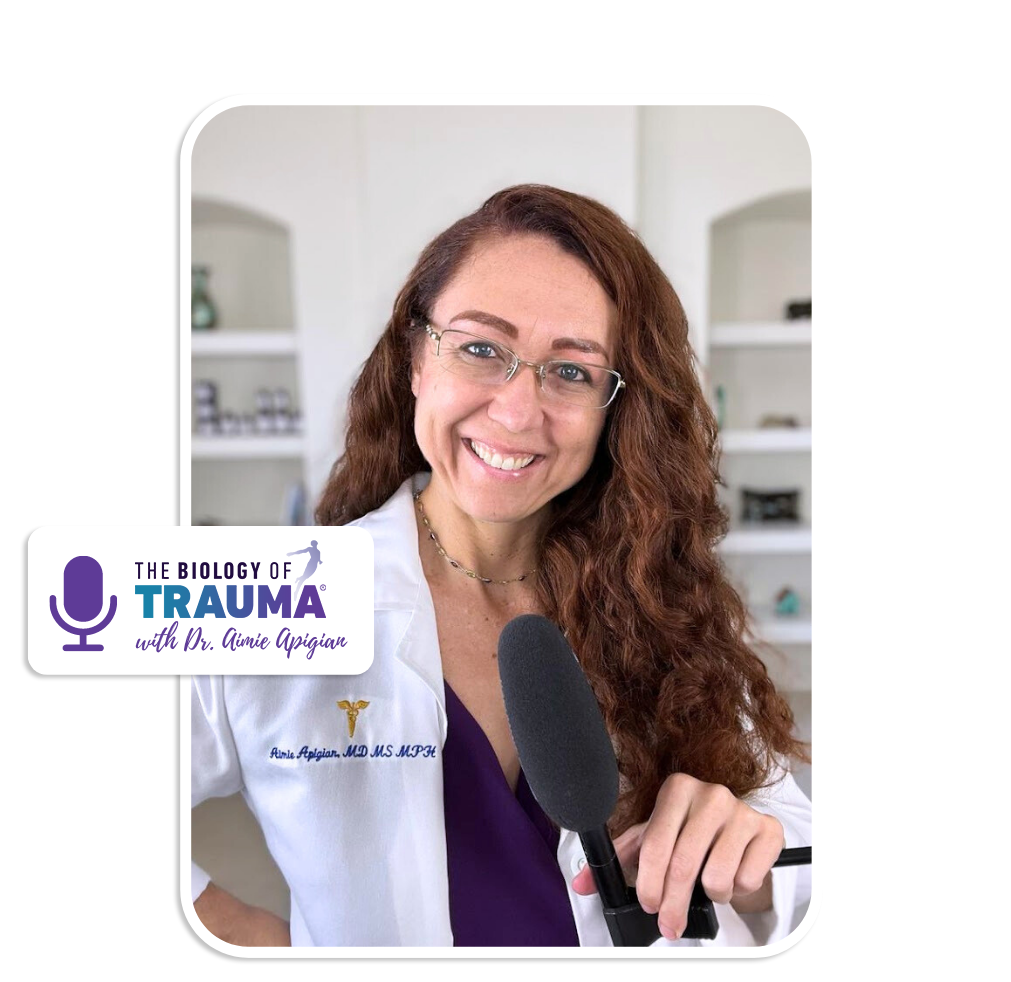
With Dr. Aimie Apigian MD, MS, MPH
Episode 8
Can Stored Trauma In The Body Cause Self-Sabotage? With Dr. Arielle Schwartz, Part 1
Show Notes
Today on Biology of Trauma, Dr.Arielle Schwartz, Ph.D., joins us to discuss stored trauma in the body and how it inevitably leads to self-sabotage. She is a licensed clinical psychologist and author of 6 books addressing a mind-body approach to overcoming PTSD. She details just how much of your behavior is influenced by unconscious signals perceived by the nervous system and how building awareness of your body heals your mind.
Trauma often pushes you to recoil into yourself emotionally because of childhood conditioning, but it is possible to learn a new way of being. In this episode, Susan Lynn speaks about her experience with the 21-day journey and how it gave her the tools to build awareness of her body and regain control of her life. Like many adults living in the freeze response, Susan felt she was battling between her younger self and her current self. Once she accepted all parts of her personality — even the negative ones — life became manageable, enjoyable, and even hopeful.
Your body is communicating with you — every ache is a message to stop and take the time to understand what your nervous system is alerting you to. With the somatic tools discussed in this episode, you can build awareness and forge new behavioral pathways that align with your current self. You will be amazed at how much you can achieve when you learn to stop self-sabotage.
Timestamps:
- [1:20] Is stored trauma in the body causing self-sabotage?
- [3:20] The conflict between your current needs and the experiences that govern your behavior
- [5:00] Building curiosity around why you feel resistance to your goals
- [6:00] Self-criticism and how your inner voice often mimics criticism received in childhood
- [8:30] Accepting the different parts of yourself & the consequence of suppressing them
- [10:00] Common self-sabotaging behaviors and how to recognize them
- [12:00] The energy-draining cycle of exiling your emotions due to childhood conditioning
- [14:00] Enhancing your creativity by embracing your vulnerability and shame
- [16:40] Somatic work, polyvagal theory, and the way out of self-sabotage
- [19:00] Awareness as a way of life: building resilience, greater tolerance, and increased capacity
- [21:00] Unconscious signals of safety or danger, sensed by the vagus nerve, influence behavior
- [28:00] Life beyond self-sabotage and accepting every part of yourself
Interested to learn more about Dr. Arielle Schwartz? Click here.
Connect with me on social media
Products I recommend from this episode
Magnesium Calm – If you want better sleep and to ease brain inflammation then taking this supplement will help you.
Comment Etiquette:
I want to hear from you! I would love to hear your thoughts on this episode and let’s make them constructive! A few requests: Please refrain from including URLs and using yours or someone else’s business name to steer clear of spam. Please do use your personal name or initials.
Let’s have a constructive, positive and productive discussion!
Drop your thoughts below about the episode! I want to hear from you.
Connect with me on social media
Foundational Journey
You. Calm. Alive.
Be safely guided step-by-step through the essential process for addressing stored trauma in your body.
Disclaimer:
By listening to this podcast, you agree not to use this podcast as medical advice to treat any medical condition in either yourself or others. Consult your own physician for any medical issues that you may be having. This entire disclaimer also applies to any guests or contributors to the podcast. Under no circumstances shall Trauma Healing Accelerated, any guests or contributors to The Biology of Trauma® podcast, or any employees, associates, or affiliates of Trauma Healing Accelerated be responsible for damages arising from the use of the podcast.



